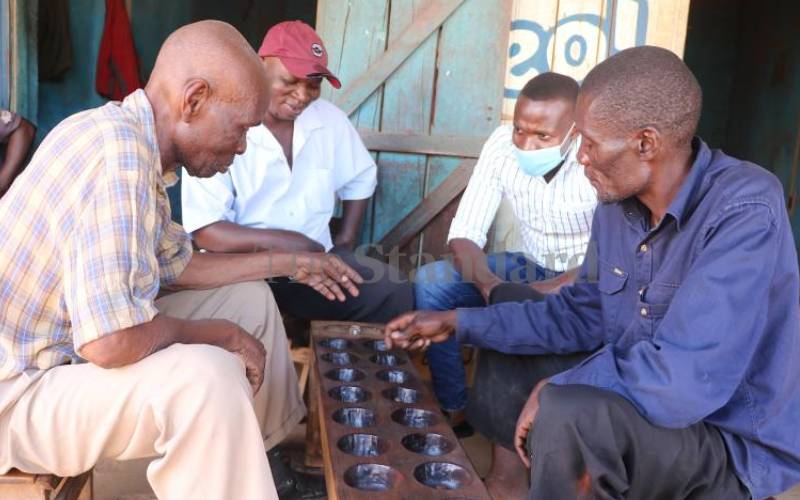×
The Standard e-Paper
Kenya’s Boldest Voice

Sabatia Ajua Club members in action at the local market in Butere, Kakamega County. [Benjamin Sakwa, Standard]
A group of elders sit in a circle, heads bowed as if in prayer on a hot afternoon at Sabatia trading centre in Butere, Kakamega County.